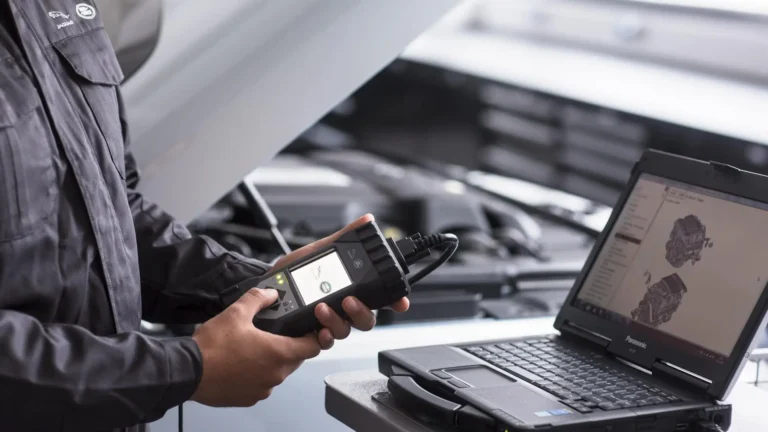Your Range Rover is designed to give you a smooth and luxurious drive, whether you’re navigating city streets or venturing off-road. But like any vehicle, it needs some attention to keep performing at its best. Are you noticing changes in how your car feels or sounds? Sometimes, small signs can point to a bigger issue lurking under the hood. If you’ve been wondering whether it’s time for a diagnostic check, here are six warning signs to watch out for.
1. Illuminated Warning Lights
Let’s start with the most obvious one. If a warning light pops up on your dashboard, don’t ignore it. Whether it’s the check engine light, ABS warning, or something else, these lights are there for a reason. They’re not always a sign of something catastrophic, but they do mean your car’s system has detected a problem. Ignoring these alerts could turn a minor issue into a costly repair. If a warning light appears, it’s a clear sign your Range Rover needs professional attention to pinpoint the problem.
2. Strange Noises
Have you noticed any unusual sounds while driving? Squealing brakes, knocking from the engine, or even a persistent clicking sound can all signal trouble. Sometimes, these noises might start subtly and grow louder over time, making them easy to overlook at first. Your Range Rover is built with precision, so if it starts sounding out of tune, it’s worth getting it checked out. Pay attention to when the noise happens—is it during acceleration, braking, or just idling? These details can help a mechanic diagnose the issue more quickly.
3. Reduced Performance or Fuel Efficiency
Does your Range Rover feel less powerful than usual? Maybe the acceleration isn’t as responsive, or you’ve noticed a drop in fuel efficiency. These changes can be frustrating, especially if you’re used to your car’s typical performance. They could indicate problems with the engine, fuel system, or even the exhaust. Range Rover diagnostics can help uncover the root of the issue, ensuring your vehicle gets back to peak condition. Don’t wait for the problem to worsen; acting early can save you both time and money.
4. Vibrations While Driving
A smooth ride is one of the hallmarks of a Range Rover. So, if you’re feeling vibrations through the steering wheel, seat, or even the pedals, it’s worth investigating. These vibrations can stem from various issues, such as unbalanced tyres, worn-out suspension components, or even a problem with the drivetrain. The key here is not to dismiss these vibrations as minor annoyances. They’re often a sign that something is misaligned or wearing down, and catching it early can prevent more serious damage.
5. Unusual Smells
Your sense of smell can be surprisingly useful in spotting car issues. If you catch a whiff of something unusual, like burning rubber, fuel, or even a sweet syrupy smell, it’s a sign you need to take action. Burning smells could indicate overheating components, while a sweet smell might point to a coolant leak. Fuel odours, on the other hand, can signal issues with the fuel system or even a dangerous leak. These aren’t problems you want to delay fixing, as some could pose a safety risk if left unchecked.
6. Difficulty Starting the Engine
Have you had to try turning the key more than once to start your Range Rover? Maybe the engine is slow to crank, or it doesn’t start at all on the first attempt. These issues can stem from a weak battery, faulty starter motor, or even more complex electrical problems. Modern vehicles rely heavily on electronics, and your Range Rover is no exception. Difficulty starting can be an early indicator of deeper issues within the electrical system. Addressing it sooner rather than later can save you from being stranded unexpectedly.
Finding the Right Professionals for the Job
Look for a garage or service centre with technicians who specialise in Range Rovers or luxury vehicles. Experience matters, as these vehicles come with advanced technology that requires a deep understanding to diagnose and repair correctly. Check for certifications, such as those from reputable automotive organisations, to ensure they have the expertise your car demands. Reviews and recommendations from other Range Rover owners can also point you in the right direction. It’s not just about fixing the problem but ensuring the work is done with precision and care to keep your vehicle in top condition.
The Bottom Line
If you’ve noticed any of these warning signs, it’s better to address them sooner rather than later. By catching problems early, you’re not just protecting your car but also your wallet. Don’t wait for minor issues to become major headaches—your Range Rover deserves the best care.
